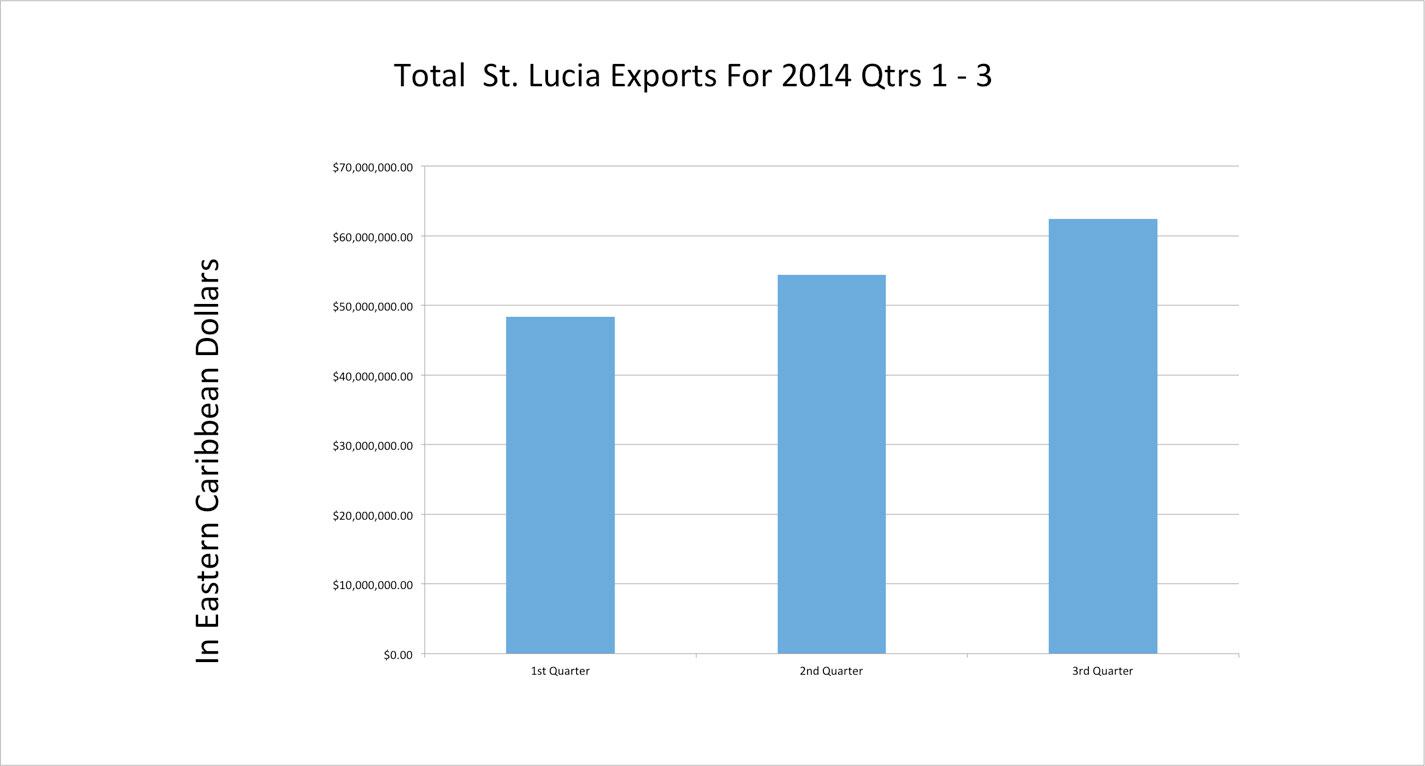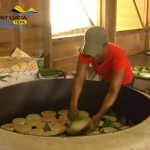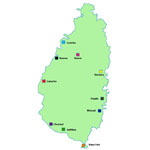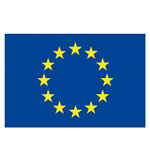
TEPA Newsletter – January-February 2015
[column size=”one-half”]
Agriculture Value Chain Symposium
The Saint Lucia Trade Export Promotion Agency (TEPA) on February 04, 2015, in association with the Minister for Agriculture, Food Production, Fisheries, Co-operatives and Rural Development hosted an export value chain symposium with the overall objective of: “Developing a shared vision towards increasing Agricultural Exports.”
This initiative targeted all practitioners and stakeholders of the export value chain namely agricultural producers, farmers, exporters, farmer groups, ministry… Read More… [/column]
[column size=”one-half” last=”true”]
ProNET Training Programme
The Trade Export Promotion Agency (TEPA) in collaboration with Caribbean Export Development Agency (CEDA) rolled out Module 6: Information & Knowledge Management of the PRONET Training Programme on Thursday, February 26th, 2015 at the conference room of the Ministry of Infrastructure, Port Services and Transport, Union, Castries.
The main objective of the module was to address the issues of the stages in knowledge and information management… Read More… [/column]
[column size=”one-third”]
Grant proposal beneficiary
On February 18th -19th, 2015, The Trade Export Promotion Agency in collaboration with Caribbean Export Development Agency (Caribbean Export), hosted a training workshop and one on one sessions for beneficiaries of the Direct Assistance Grant Scheme (DAGS)… Read More… [/column]
[column size=”one-third”]
TEPA Has A New Website
TEPA has a brand new website. This website is attractive, clean and user friendly. Overall it has been designed to be a one-stop-shop for persons who need information on Saint Lucian exports, exporters and services available through TEPA. The website houses many of the information products of TEPA’s… Read More… [/column]
[column size=”one-third” last=”true”]
Saint Lucia Has…
TEPA has been collaborating with DBS since December 2014 to air “Saint Lucia Has”, the brain child of Deborah Daher. The show’s objective is to introduce Saint Lucia to goods and services are available and produced on island. The program introduces products originating… Read More…
[/column]
Regional/International News
[column size=”one-third”]
3rd CARIFORUM-EU Business Forum
The CARIFORUM-EU Business Forum is an international trade and business development conference designed to connect Caribbean, African, European and Pacific businesses. Taking place from April 15 – 16, 2015 in the beautiful location of Montego Bay, Jamaica the forum will… Read More… [/column]
[column size=”one-third”]
Saint Lucia’s Private Sector to Get a Financial Boost from Caribbean Export
The Caribbean Export Development Agency (Caribbean Export) has awarded some €303,000 in financial assistance to seventeen (17) successful grant applications via the Direct Assistance Grant Scheme (DAGS) in Saint Lucia. Additionally a further… Read More… [/column]
[column size=”one-third” last=”true”]
Partnership Between Businesses in the Caribbean and EU to be Bolstered by the 3rd CARIFORUM-EU Business Forum
The Caribbean Export Development Agency (Caribbean Export) will host its third CARIFORUM-EU Business Forum, scheduled to take place on April 15 – 16 in Montego Bay, Jamaica. … Read More…
[/column]
Upcoming Events
- EXPO MILANO – May to Oct, 2015 | www.expo2015.org
- SIAL Canada – April 28-30, 2015 | www. sialcanada.com
[column size=”one-half”]
ASK Anthony

Anthony John, Project Office, Saint Lucia TEPA
Question:What is the EU’s Generalised Scheme of Preferences (GSP)?
Answer:
- The EU’s Generalised Scheme of Preferences (GSP) is designed to support developingcountries export to the European Union (EU) and so facilitate their integration into International markets. This is done by reducing tariffs for their goods when entering the European market. It is a unilateral measure by the EU: there is no expectation or requirement that this access is reciprocated by the countries concerned. It is based on clearly defined rules of the World Trade Organisation (WTO).The EU has applied a GSP scheme since 1971. The scheme has been revised several times to reflect evolutions in international trade and development patterns.
- [/column]
[column size=”one-half” last=”true”]
Did You Know…
EU food labelling rules ensure that consumers receive the information they need to make an informed choice when purchasing food or drinks. To help them choose, labels must carry certain information, namely:
- The name under which the product is sold. The name should be a customary name or description of the food or beverage. A trademark, brand name or fancy name can be used, but the label must also give the generic name of the product, which describes its nature. The physical condition or specific treatment it has undergone must also be included if its omission could be misleading for consumers.
- The net quantity (weight, volume).
- Any special conditions for storage or use.
- The name or business name and address of the manufacturer, packager or importer established in the EU.
- Place of origin or provenance, where failure to give such particulars might mislead the consumer
- Presence of substances known for their ability to spark allergic reactions and intolerances should be always stated.
- Lot marking with the marking preceded by the letter ‘L’ to enable tracing.
- This information must appear on the bottle or on a label on the package.
[/column]
Saint Lucia Export Statistics

Source: Saint Lucia Department of Statitics









